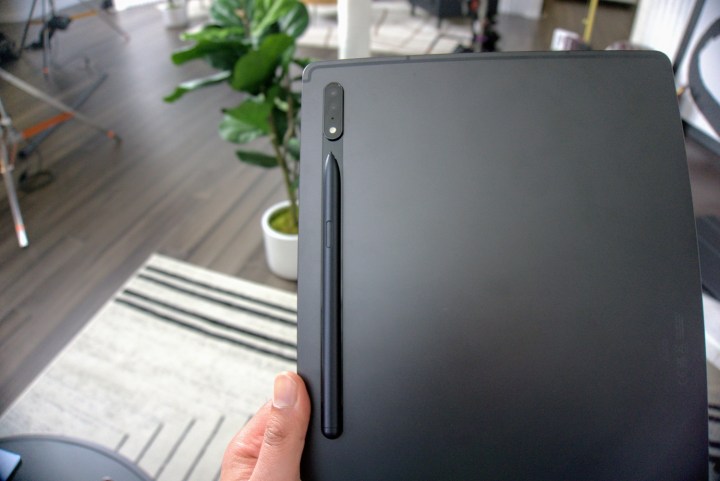Android tablets have usually fallen behind iPads and Windows tablets when it comes to offering good tablet experiences. With Android 12L, Google is taking that particular bull by the horns. The update will roll out to Pixel phones starting next month, but Samsung’s recent announcement of the Galaxy Tab S8 casts a shadow over what should be a revival for Google’s tablet ambitions because it shows that the problem with Android tablets isn’t really with the interface.
What’s Android 12L?
To quickly recap, Google last year announced Android 12L, an initiative the company is using to make Android a better experience on tablets and foldables. The company will continue this work through Android 13 and has hopes for app developers to step in line and create apps that would work better with Android going forward. The big issue here is that

Android 12L, as far as focusing on bigger screen devices goes, amounts to pretty much a user interface revamp. There’s a new multi-pane interface for the lock screen and the notification center, and there’s support for a dock for productivity scenarios. But none of this actually fixes problems that exist for users. If you’ve done any shopping for Android tablets recently, you’ll notice that companies like Samsung that actually sell
Android tablets already have optimized interfaces
Take the Samsung Galaxy Tab S8, with One UI 4 on board. It is one of the best tablet experiences you’ll see short of an iPad. Samsung has always built its stock apps to be optimized for larger displays, every part of the user interface respects that you aren’t using it on a phone, and attaching a keyboard cover on it shows you something that more or less approximates the traditional desktop environment you’ll get on a laptop or a Chromebook.

This is not to say that Android 12L isn’t coming to the Tab S8 –i t is. “We are in constant conversation with our collaborators at Google and
It’s just that moves like these aren’t what would make Android tablets better. The real problem Google (and Samsung by extension) faces on tablets is a lack of discrete software that takes true advantage of the bigger screens. This is a ubiquitous issue on all large-screened
It’s not as if there aren’t third-party tablet apps available for Android, but the vast majority are either projects from large companies, or variants on a note app, file manager, or some other utility. Truly useful, unique, and well-thought-out apps frequent the Play Store less as a consequence of developers focusing on iPads more. That’s the trouble with the
Android 12L isn’t necessary (but it will be a bonus)
To give credit where credit is due, Samsung is working on this angle. The company has been building out a suite of tablet-optimized apps such that your Samsung tablet would be very capable out of the box. It’s also worked to bring over powerful apps like LumaFusion so that its tablets are seen as an option. Whether on Chromebooks or on Android tablets, Google hasn’t quite shown as much urgency.
Not that it would matter since few tablets are sold with Google’s apps as default in any case. Yes, it is a good thing that Google is forcing some sort of structure on large-screened Android devices, but none of this will actually change much on the user level. It has always been possible to build apps for
Does this mean that Samsung’s newest tablets aren’t worth it? Hardly. If you’re using your Android tablet primarily for entertainment with some light productivity, then those apps will mean nothing to you. Samsung already has the best screens, the best speakers, and the flexibility of
Editors' Recommendations
- 5 phones you should buy instead of the Samsung Galaxy S24 Plus
- Samsung’s newest Android tablet is a perfect iPad alternative
- 5 phones you should buy instead of the Samsung Galaxy S24 Ultra
- Don’t buy the Samsung Galaxy S24 — 5 reasons to wait for the Galaxy S25
- There’s something Samsung didn’t tell you about the Galaxy S24



